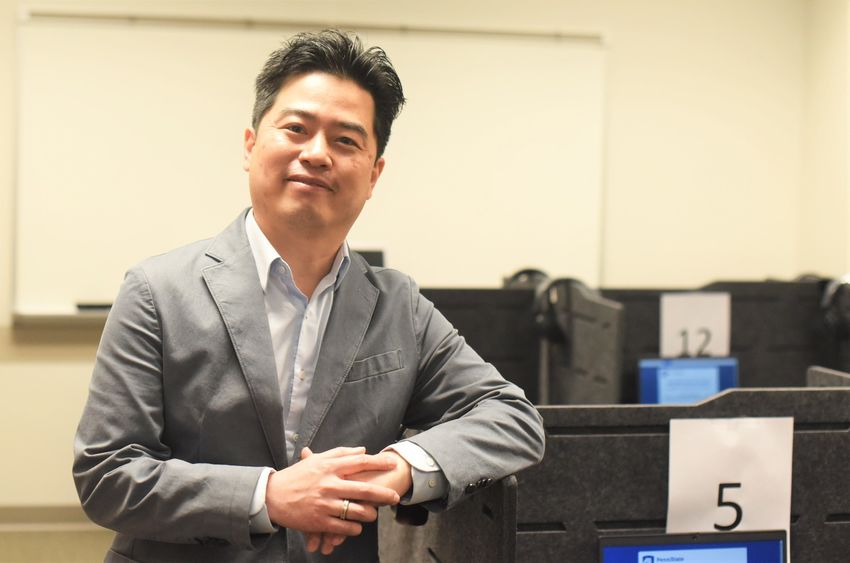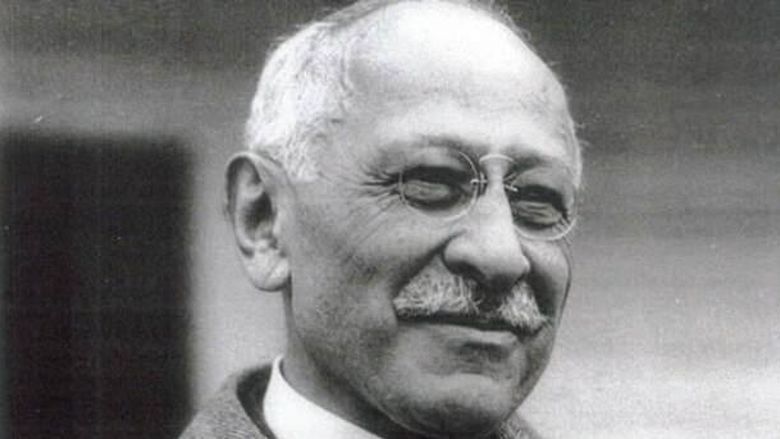
Joongseo Kim, an assistant professor of management at Penn State Behrend's Black School of Business, coordinates research in the college's Raimy Behavioral Lab.
ERIE, Pa. — At Fort Hood, where he conducted integrity studies for the U.S. Army, Joongseo Kim administered the “pen test.” He’d pass out administrative forms and offer the soldiers a selection of pens.
Some of the pens were expensive. As the soldiers completed the forms, Kim watched what they did with the pens. Some left them on the table. Some handed them back to the proctor. A few kept them.
“Businesses are built on many people making decisions,” said Kim, now an assistant professor of management at Penn State Behrend’s Black School of Business. “When you understand how people make those decisions, you’re more likely to be successful as a business.”
Outside influences often complicate the process. For example: If you order dinner at a restaurant and feel rushed by the waiter, you may, when the food arrives, wish you had chosen what is on your companion’s plate. That’s called “bounded rationality,” said Kim, the Dr. Chester “Chet” L. Wolford Early Career Professor. It occurs when an individual lacks the time, energy or information to consider all possible outcomes.
At dinner, the impact is negligible. In other settings, Kim said, bounded rationality can hobble a business.
“Our behaviors are often to some degree irrational,” he said. “That is evident when we make investment decisions, when we hire employees, or when a manager bases a decision on a gut feeling.”
At Behrend, in the Raimy Behavioral Lab, Kim studies how decisions are made — how people rationalize their choices, based on beliefs and other motivators, and why they often select an option that isn’t the best fit.
“We assume that people make decisions in a rational manner,” he said, “but that isn’t always the case. We buy things on impulse. We trust our hunches.”
The Raimy Lab is equipped with 20 computer workstations, where students participate in behavioral experiments or respond to survey questionnaires. The data collected from those studies supports academic research in the fields of marketing, supply chain management, economics, accounting and management information systems.
More than 600 students participate in the research each semester. They receive course credit or cash incentives and gain experience in behavioral and market-research environments.
“It really helps you understand the process,” said Abigail Cochran, a junior in the marketing program at the Black School. She works in the lab, administering surveys in 45-minute sessions. “I’ve taken the surveys, and I had a data analytics class where we learned how to create surveys,” she said. “This is teaching me the other end of it.”
Kim and other researchers sometimes observe the sessions from a side room with a one-way mirror. They also use that space for structured, team-based simulations. Observers watch the teams work and assess their strengths and shortcomings.
The simulations often focus on an aspect of business ethics – a boom market since the Enron scandal, which cost shareholders $74 billion.
“One corporate scandal can liquidate an entire business,” Kim said. “After Enron, people in business looked closely at their leadership and the culture of their companies and said, ‘We’ve got to get this right.’ A big part of that is situational factors, including the climate in the workplace.”
He plans to upgrade the Raimy Lab, adding eye-tracking technology, which can measure the interest and intensity of focus of a study’s participants, and tablet computers, which will enable researchers to collect data beyond the Behrend campus.
“There’s a lot that goes into this,” Kim said. “You have to be asking the right research question and make theory-based predictions. Then, you have to have the right methodology in place to collect and analyze the data to examine whether the predictions are supported or not. But, at the end of the day, empirical studies all come down to gathering data. Without that, you can’t study and learn anything.”
Robb Frederick
Director of Strategic Communications, Penn State Behrend





